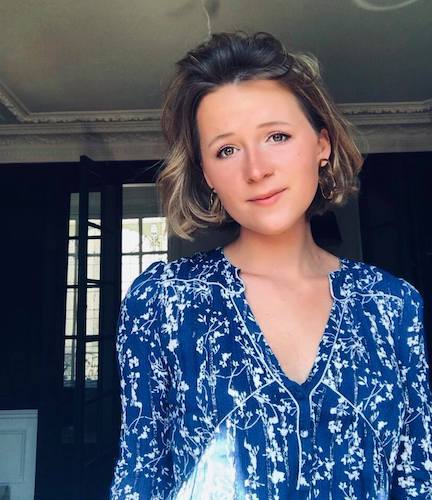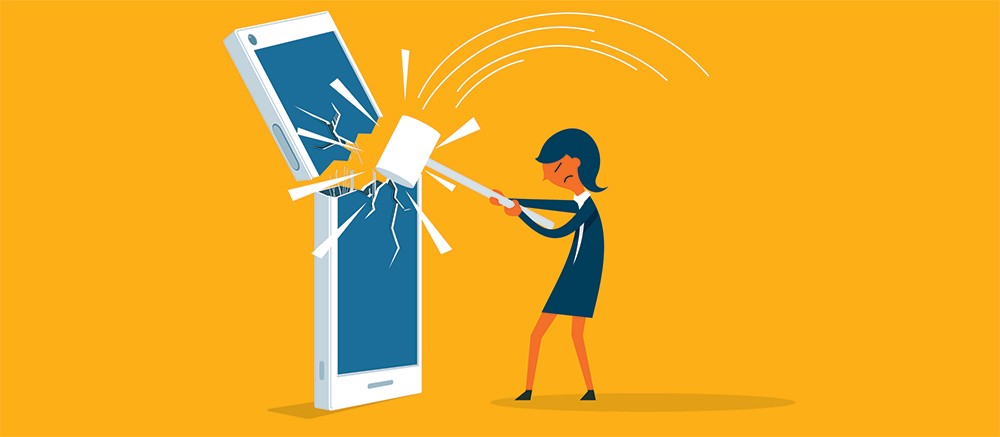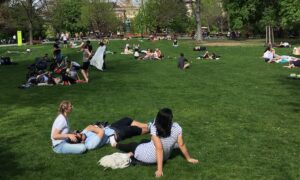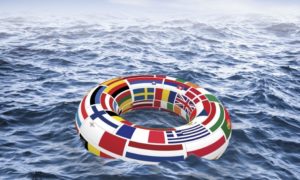(Editor’s note: Yes, we’re in the tech biz. But digital addiction is a thing. You can see more details here about addiction and digital detox.)
Average screen time on my smartphone: 5 hours and 46 minutes
Average screen time on my laptop: 7 hours and 23 minutes
As a full-time master’s student freelancing for a few startups on the side, my laptop is quite literally part of my body, an extension of my arms. Whether it’s to type an essay, write up a post or create visual content for social media, I am glued to it – not to mention binging series on Netflix and scrolling on my feeds.
But I hadn’t taken more than two days off in a row since September – Christmas and NYE included – and I was starting to feel mentally exhausted. I also feared that if I had continued down this road, I might have thrown my laptop out of the window and stamped it until it became a little pile of dust.
I’m not Christian, but man did playing God and accelerating the process of returning my laptop to dust was beguiling.
“For you are dust Macbook, and to dust you shall return” (Pauline, Genesis 3:19). Sorry for making you roll in your grave Steve.
Back to a pre-smart phone, pre-social media past
So I decided to take a holiday, but not any holiday; a digital-free one. I called my boss and my dissertation supervisor, asked whether I could go off the grid for four days and, much to my relief, they both agreed. I thus got organised, created my “out of office” automatic email reply, scheduled the social media posts for one of the startups, and booked my train ticket to the French countryside.
I didn’t do things half-baked, because I decided to go old-school, and by old-school, I mean 1600 BC – before “time” was a thing. I not only left on holiday without my phone or laptop, but I also left without my watch.
That meant that for four entire days, I had a vague idea of what time it was, but my clock was that of my body of the sun; I slept whenever I was tired and ate whenever I was hungry.
No more breakfast at 8, lunch at 1, dinner at 8 and bedtime at 10, and it was liberating. I have honestly never felt freer than then.
I would fall asleep at sundown, wake up at sunrise, and take a few naps during the day. When you think about it, we are the only mammals who willingly delay sleeping, it’s absurd and unhealthy!
Back to smartphones: behind those seemingly innocent ring tones, there is sometimes a more or less pronounced addiction that we rarely dare to face, but as a digital anthropology student, I know full well how these platforms and tools are tailor-made to capture and hold our attention.
In brief, to create a need, application designers rely on a four-step recipe:
• A trigger attracts our attention, such as the appearance of a notification on Facebook.
• Then, an opportunity for action presents itself to us – scroll down the list of alerts, for example.
• Then, there is a pinch of uncertainty – if the reward was systematic, it would be less addictive.
• Finally, we have the option to invest in the interaction, by leaving a message or sharing a post.
When we are notified about pleasing content, a dopamine release is triggered in our brain. This neurotransmitter causes a feeling of pleasure. The human body normally uses it to reinforce certain positive behaviours, such as eating, sex or social approval. Used in excess, it simply trains us to be able to focus for very short periods of time before seeking another dopamine shot.
About that, during my break, I read a book titled “The Goldfish Civilisation,” a brief treatise on the attention market by Bruno Patino. Although I don’t recommend reading it (if you are interested in learning more about this topic, I’d recommend “The Death of the Gods,” by Carl Miller), as it was quite simplistic and lacked nuance, it made a fair point.
According to searchers working for Google, the attention span of a goldfish is 8 seconds, and the attention span of Millennials is 9 seconds. Quite a worrying statistic, isn’t it? Especially when reading the last page of the book, which states that goldfish usually live in groups, and grow up to be 20 centimetres long, unless they are atrophied by the size of their tank.
I don’t believe the small tank to be a good analogy with digital tools; it is more nuanced than that, as we must not forget that they also afford us a lot of freedom and opportunities.
Digital detox is not easy
Anyways, doing a digital detox is, as most of you know, not as easy as it sounds, because of the doses of dopamine we get daily through our smartphones and laptops. During the first day, I kept reaching out to my pocket, only to find it empty. I had weird reflexes, like going to buy bread without taking my credit card because “I can use Apple pay on my phone, who needs a credit card these days”.
After the first day, that reflex wore off, and I started to truly enjoy being in the moment (sorry for sounding corny).
It was bliss to be able to observe the scenery without snapping a story of it, listening to birds chirping, and actually reading an entire book per day, which I hadn’t done since I was 13.
I think what helped most was leaving both my phone and laptop at home, a three-hour train journey from where I was, meaning that I knew I could not use them even if I wanted. It seems as though cutting one addiction – my phone – naturally led to cutting another; smoking.
Although I took my cigarettes with me, I did not feel the need to smoke a single one for four days, which I honestly hadn’t done in years (no judgement please, I’m French). I also observed people more, as well as their behaviours with their smartphones. The friend I left with would, for example, snap a picture of the scenery, then immediately stare at the picture, despite us being literally in front of said scenery.
When you see how stunning it was, you’ll understand my bewilderment as to why my friend would look at it through her phone rather than IRL.
Back to reality
Coming back to “reality” was harsh. When I turned my phone back on, I had a pit in my stomach. It rang and buzzed for five minutes straight, and I was worryingly staring at all of the notifications popping up, of friends worried about me not replying, emails from work, texts from my students, LinkedIn notifications telling me “you should apply to this job” and so on.
So, what has changed?
I stayed on Instagram for five days before temporarily disabling my account; we will see how long this lasts. I deleted the Facebook app. My screen time on my phone has significantly dropped, to roughly 2 hours per day. It hasn’t really dropped on my laptop as I use it mostly for work. I also haven’t opened Netflix yet, whereas before leaving on my digital detox, not a day would go by without my binging something on Netflix, whether it’s when I was washing the dishes, getting ready to go out, or going to sleep.
I’m considering joining the crowd of people leaving Netflix now. I also decided to pursue this digital detox one weekend per month, which is something I sincerely hope I’ll stick to as I feel it will really help with my anxiety. If you have the privilege to be able to cut out your phone and laptop for a few days, I could not recommend it more. It truly rekindled my desire to read books, wander, observe my surroundings and listen to myself.
Average screen time on my smartphone: 2 hours and 17 minutes
Average screen time on my laptop: 6 hours and 58 minutes

About the author:
Pauline Lemaire is a Digital Anthropology Masters student at University College London (UCL) and is thus currently based in London. She grew up in Singapore and Morocco, but her family has now relocated to Paris.
She holds a bachelor’s degree in French Literature and Philosophy from the University of Oxford.
See all of Pauline’s Dispatches posts here.
After completing her Digital Anthropology Masters at University College London (UCL) Pauline Lemaire currently is based in Geneva, Switzerland. Pauline grew up in Singapore and Morocco, but her family has now relocated to Paris.
She holds a bachelor’s degree in French Literature and Philosophy from the University of Oxford.
































